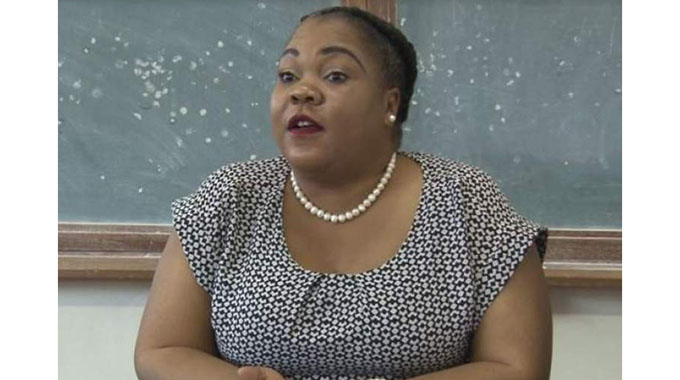Covid-19 and its toll on women

Locadia Mavhudzi
Correspondent
As the world is taking a pause to celebrate International Women’s Day today, a cross section of women in the Midlands province say the previous year has been a mixed bag with new challenges and new adaptation methods towards empowerment efforts.
The Covid-19 pandemic has exposed society’s reliance on women both on the front line and at home.
Women in Gweru, the Midlands’ capital, say pandemic and the lockdown has increased their burden of unpaid care work associated with economic, social and emotional stresses.
Florence Guzha from the Women’s Coalition of Zimbabwe Gweru Chapter said women in the informal sector had been hard hit by loss of income since the onset of the pandemic, a situation which may take long to recover from.
“Covid-19 has brought a deteriorating effect on the economic status of women,” she said. “The demolition of workspaces like Kombai food market and Kudzanai rank market as a way of controlling the spread of Covid-19 de-stabilised the lives of over 20 000 families, predominantly women and young people. Loss of income itself renders the woman vulnerable in the household because she can no longer enjoys bargaining power. As a nation, we must also realise that economic insecurity is not just jobs and income loss today. It has a snowball effect on the lives of women and girls for years to come.”
Guzha said women reported an increased burden in taking care of children, performing household chores and taking care of the sick, among other routine duties they have at household and community level.
Gweru Ward 9 Councillor Cathrine Mhondiwa said she received several complaints in her ward during the lockdown period, as some young women suffered abuse at boreholes and water points.
“The lockdown period has been coupled with erratic water supplies in Gweru, with communities enduring up to 14 days without tap water in Mkoba and other areas like Ridgemont,” she said.
“I have handled complaints from young women and those living with disability that they were living in fear due to subjection to ill treatment by ‘macho men’ at water points. We engaged police which recommended that we establish community water point monitors who would take note of the perpetrators. Though women constitute the bulk of those who are burdened with fetching water, they have been manipulated by macho men.”
Nobuhle Mahlahla, Director of Youth Essence, a local organisation in Gweru, said young girls and young women had been emotionally disturbed by the prolonged out of school period and there is need to offer them psychological support.
Read the full report on www.herald.co.zw
“Covid-19 has been a blow to everyone,” she said. “We need to understand the psychological stresses brought upon to young ladies from tertiary institutions. Being at home meant more household work and at times having to share the parental role of taking care of the family and siblings.
“For some, the prolonged stay at home has subjected them to gender-based violence in their relationships. We have also heard reports of young women eloping into marriages due to household economic pressures. We have referred some of our members to organisations like Musasa Project and Zimbabwe Women Lawyers Association (ZWLA) for social support.”
While women in urban communities have been battling with various struggles, those in the rural areas are telling a different story.
Agnes Mpansi, Chairperson of the Chiwundura Farmers Club said Covid-19 and the lockdown period gave them ample time to focus on agricultural productivity.
“For us, the restrictive measures meant that we had to focus on our fields,” she said. “We have nutritional gardens which have been sustaining our livelihoods. We never yearned to go to town because we have been busy and have been aware of the risks associated with over populated environments.
“Though we can no longer meet and chat at boreholes, churches and dip tanks as we used to do, we have now been concentrating on boosting the bread basket. We are grateful for the surplus rains. All our crops have done very well this season and we are in a celebratory mood. We can safely say the lockdown period has been a catalyst towards improved yields in rural areas.”
Midlands State University Gender Institute Director Professor Irene Muzvidziwa said impacts on education have long lasting consequences that, if unaddressed, will reverse hard-won gains in gender equality.
The key constraints to resilience for women due to Covid-19 range from poverty, reduced access to scarce resources and lack of information.
Learning institutions must focus on addressing learning losses and preventing drop-outs, particularly of marginalised groups.
Digital space bridges the information gap
Despite the Covid-19 and emerging challenges, many women in urban communities resorted to the use of online spaces to initiate or continue conversations on women empowerment.
Grace Mazambani of the Young Women’s Forum in Gweru said digital spaces such as WhatsApp, Twitter, Facebook and Zoom largely bridged the information gap amongst women since the onset of the pandemic.
“We have realised that many women have embraced the digital world and are now taking the platforms seriously,” she said. “Women’s Coalition of Zimbabwe has been sending weekly updates with gender lenses of the Covid-19 situation through online platforms and most women were eager to follow up and know what is happening across the country.”
Mazambani said women participated in Zoom meetings and gained knowledge.
“Through the Womankind project, we have been able to engage with duty bearers and community leaders online in our communities on issues of accountability and transparency,” she said.
Mazambani said Covid-19 has unveiled an opportunity for government to improve investments in the information communication and technology sector in rural areas as the world is now digital.
The Covid-19 crisis may pass, but the importance of ICT skills will continue to grow. It is vital that this digital gender divide be addressed at home, at school and in the wider community so that no girl is left behind.
According to the UN Women and UNDP Covid-19 Global Gender Response Tracker, most of the world’s nations are not doing enough to protect women and girls from the economic and social fallout caused by the crisis.
The tracker recommends that governments need to adopt comprehensive gender-sensitive policies that include gender-based violence prevention and response, develop care systems and support unpaid care work, along with measures to ensure women’s economic security.
Such measures will only be effective if they are adequately financed and sustained over time.
Governments must also support women’s active participation in leadership and decision-making in their Covid-19 responses.
According to UN Women, governments should also invest in data collection, to ensure that policies are based on up-to-date gender statistics, which are disaggregated by sex, income, race/ethnicity, age and disability, among others.









Comments